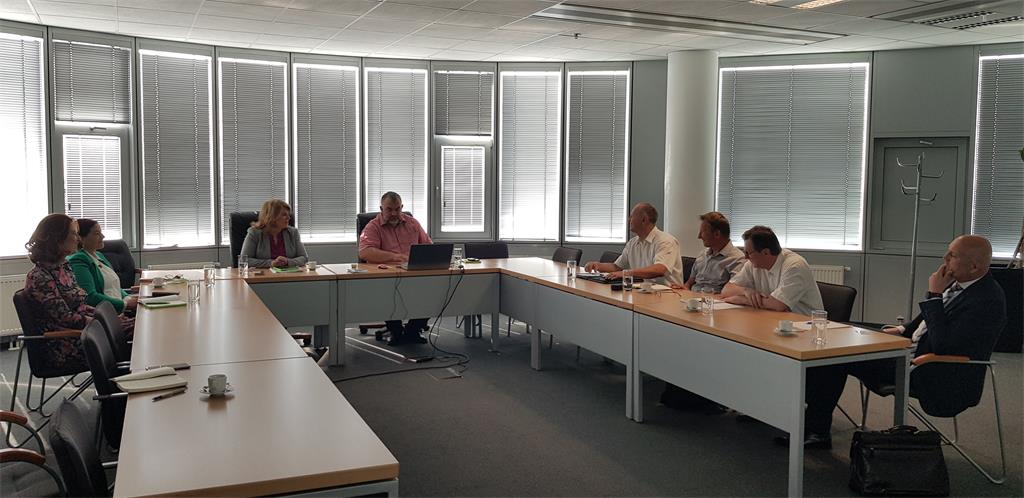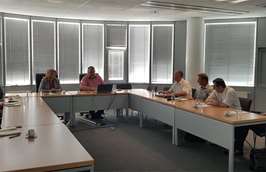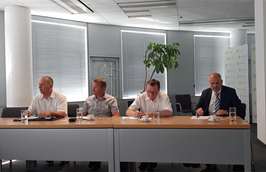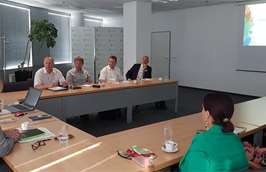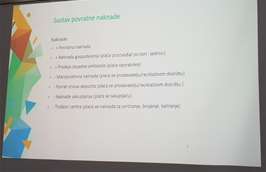24.05.2022.
A meeting was held today at the Environmental Protection and Energy Efficiency Fund with Slovenian counterparts in the field of waste management who were interested in learning more about the Croatian deposit system.The Croatian deposit system was presented to the Slovenian delegation consisting of Igor Petek, the director of the waste collection company Publikus, Sebastijan Zupanc, the director of the Chamber of Public Utilities, Srečko Bukovec, the CEO of the company Slopak, and Drago Dervarić, the general manager at Saubermacher komunal. The presentation was held by Zvonimir Majić, the head of the Sector for Special Categories of Waste. His colleagues Aleksandra Čilić, the head of the Environmental Protection Sector, and Jadranka Rajić Bradvica and Žana Žarkov Trtanj, both heads of departments at the Sector, also participated in the meeting.
The head of the Sector for Special Categories of Waste, Zvonimir Majić, described the deposit system and the way it was set up, while the Slovenian delegation expressed interest in the presented best practice examples and the share in sustainability. “The deposit system in Croatia has been in place for 16 years and it covers single-use PET, Al/Fe and glass beverage packaging with a volume of 0.2 l and larger. This system is now also promoted by Europe since it has the bests results and Croatia proves that it works. The system organised in this way ensures a high rate of collection, as well as quality raw material that can be used in further production. We are aware that the system could function better in certain segments, and by this I mean that it should be automatised to the greatest possible extent so that the packing at the shops would no longer be accepted and counted manually but using RVMs. This would streamline the costs,” explained Majić. The deposit system has excellent results with the collection rate of over 85%, so in 2021 it was extended to cover not only beverages with the volume of 0.2 l, but also milk and dairy products.
An important role in this system is played by recovery operators that treat the waste to make it suitable for further use. Since Slovenia does not have recovery operators, this was one of the aspects that caught special interest of the Slovenian delegation, who expressed the wish to introduce this type of waste treatment in their country.
The Slovenian delegation gathered useful and insightful information, so further cooperation was agreed on in the autumn, when Croatia will present the best practice examples to other stakeholders in waste management in several conferences in Slovenia.


